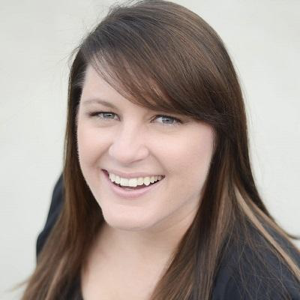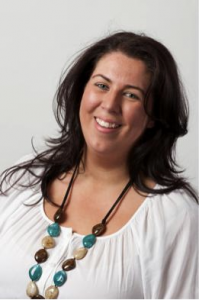- Finance, Advice
Should freelancers ask potential clients what their budget is? 8 freelance experts sound off
This is a post from a member of the Freelancers Union community. If you’re interested in sharing your expertise, your story, or some advice you think will help a fellow freelancer out, feel free to send your blog post to us here.
When I started freelancing in 2013, I did a lot of Googling to figure out how to handle meetings with potential clients. Many experts out there said I should always ask "What's your budget?" before quoting a price.
Ooph. Of all the questions to ask, that was the toughest. What I found was:
- Most of the time, they either didn't know what their budget was or wouldn't tell me.
- It felt deceptive, like maybe the prospect thought I was trying to squeeze out as much money as possible from them.
These days I no longer ask potential clients what their budget is. I know my work well enough to know how much it will cost, and I like to stick to flat project fees. My rates are my rates. If they can't afford me, that's fine.
Yet the debate continues. To settle this question (or at least shed more light upon it), I decided to ask freelance experts to weigh in on the pros and cons of the budget question.
Below you'll find a range of answers from "Yes" to "No" to "It depends." I hope this helps you consider all the information and come to a decision that best suits your freelance business!
Should Freelancers Ask Potential Clients What Their Budget Is? Let’s Hear From the Experts...
"Yes"
Carrie Smith Nicholson, systems strategist and productivity blogger
Carrie is the founder of Careful Cents, where she writes content related to time management, productivity, and financial organization.

"Yes, in my experience with freelancing over the past four years I've found it very beneficial to ask clients what their budget is before committing to working on a project. More often than not, a client will quote a price that's above what I was initially thinking of charging them. In the case of their budget being near the price of my rates, it makes it easier to start negotiating. And in the event that the budget is much lower than my rates, I'm able to save time versus getting caught up in negotiations that lead nowhere.
When potential clients email me about working together, I always request more details about the project and the budget. I let them know that I'm willing to share my rates but that I want to hear their thoughts first. That way I don't offend them by quoting a price that's way over or under what they were thinking."
Kit Whelan, social media consultant
Since 2009, Kit has run a social media consultancy helping small-to-medium sized businesses, mostly in the luxury travel space, refine their branding and handle their digital presence.

"YES! When I do exploratory calls with potential clients, I ask them all sorts of questions. What are their goals for the brand? Who's their ideal audience? What are they looking for in a partner? All that is completely moot if I don't know their budget (or at least a ballpark). They might not be able to afford me, or on the flipside, I might send them a proposal that doesn't fully address their needs. Knowing their budget allows me to give them a package that's perfect for them. No more and no less.
I always (ALWAYS!) send my rate sheet when I'm first connected with a new client. It includes sample packages as well as my hourly rate and rates for one-off items. That way no one's time is wasted on an introductory call if they can't afford me."
Gina Horkey, virtual assistant and freelance writer
Gina started freelancing in 2014 and within six months was making $4,000 a month—all while working a full-time job and raising her children. At Horkey HandBook, she helps others start side hustles and freelance businesses.

"ABSOLUTELY! If you don't know their budget, how are you going to know if you're a match?... You shouldn't be afraid to ask clients what they need and what their budget is for the project. They're going to expect to pay (or you shouldn't be talking to them), so what's wrong with getting it out in the open right away and not wasting anyone's time?"
"No"
*Peter House, commercial fashion photographer
Peter runs a Toronto photography studio and is a staff writer for Fstoppers.*

"I don't ask about the budget because I don't expect the client to understand my industry and to know all the costs associated with production. Potential clients seek me out as an expert in my field. If I start letting them dictate what things cost I can't run a successful business and can't pull off a production to the standards I would like. So if the client expects me to produce content for them I simply tell them what that will cost and we can usually scale within their budget through the usage license.
I have a very narrow and defined set of services with standard rates. Any client that asks me for work receives those same rates."
Mike Straus, freelance writer
Mike is the owner of Brand Gesture, where he does editorial for medical trade magazines and copywriting for tech companies.

"This is a tough question. As a freelancer, you don't want to over- or under-quote, so getting the client to blink first makes your life a heck of a lot easier. Personally I don't ask my clients what their budget is, for a couple of different reasons. First of all, it may give the impression to the client that your rates aren't based on any kind of objective measure of your value. Secondly, asking a client what their budget is carries a terrible subtext—namely, that 'I'm looking for a cash cow and if you have a big budget I will devour it.' Having set rates that you quote clients without asking for their budget first shows that you take your craft seriously and you have enough self-respect to ask for what you're worth. Confidence is sexy, and it makes clients want you.
I publicize sample project fees to give potential clients a solid idea of what they'll end up paying me before we even meet for the first time. That allows my potential new clients to self-select into or out of my target market. Either they have the money to pay my rates (in which case they'll reach out) or they don't (in which case they move on to a lower-priced freelancer). Saves me a whole lot of time—I don't have to qualify my prospects because they end up qualifying themselves."
Donna Brown, virtual assistant
A self-described Work From Home Revolutionist, Donna spent 12 years working primarily in the Virtual Assistant sector and now helps other VAs grow their businesses.

"No, I don't think we should ask in 99% of cases. This is because we shouldn't want people to buy us based on price. I want someone to invest in me because I am the best solution for their problem. When people buy you based on price, you become a commodity (and move away from being an authority). What this means is that WHEN your price no longer suits their needs they will go and find someone cheaper. Why? Well, because the most important deciding factor when they bought you in the first place was price. With increasing fees (and as freelancers we should all be increasing our rates regularly), there will come a time when you no longer fit someone's budget.
However, when someone buys you based on your skills, your magic, and the absolute amazing solution you bring to their world—price takes second place. You can increase your rates with less of an impact on client loyalty. You 99% of the time get paid MORE than your competitor by happy, enthusiastic clients!
With every sales call I have in my VA business, I never ask what their budget is, and sometimes I even go as far as not asking what tasks they think they want done. I instead ask 'What are you trying to achieve or where are you struggling?' and then I map out a plan of what I think would be most appropriate.”
"It Depends"
Josh Hoffman, digital marketing and personal branding consultant and strategist
As a consultant and strategist, Josh help businesses market themselves online, mainly through social media and content marketing. He founded Epic Freelancing to help freelancers, entrepreneurs, and professionals build a strong online presence.

"Yes and no. Yes, because it allows freelancers the opportunity to qualify potential clients. But no, because, at the end of the day, freelancers that have a strong personal brand don't have to worry if a potential client does or doesn't have a certain amount of budget. In other words, potential clients are willing to pay a premium to work with freelancers who have a certain stature in the marketplace.
I focus on proactively marketing myself (a combination of content marketing, social media marketing, and email marketing) to build my personal brand, and develop a certain stature in the minds of potential clients. My marketing efforts are focused on the 'end' of the services I provide (rather than the ‘means’—my services themselves), which means I directly tie my services to real business results, such as more customers and higher lifetime customer value. When you tie your services to real, relevant business results—combined with a strong personal brand—potential clients will increasingly value and, therefore, pay more for your services."
Michael Young, freelance illustrator and animator
Michael has more than 10 years of experience in the web industry and specializes in UI design, illustration, and animation.

"I believe it's horses for courses. Where I think it's appropriate to ask a client's budget is when either the client makes reference to their budget in our initial interaction (i.e. 'we have a strict budget') so that's a natural lead into asking what that amount is and then whether I want the project. Or, if it's a project that looks really interesting or exciting and I'm willing to work with the amount they have budgeted.
Aside from that, I have my set hourly rates and it's a matter of detailing how many hours I think the project will take. Because my approach is conditional, it's fairly easy and I evaluate it as it comes. Just recently, a design agency contacted me about some illustration work and mentioned they had a tight budget. That signaled to me they expected me to inquire as to the amount."
So What's a Freelancer to Do?
Consider all the advice and test it out to see what works best for your freelance business.
Try asking the budget question, try not asking it. Then evaluate how it went. Which method helped you land the best clients for you? Which method felt the most genuine? Which saved valuable time?
In the end, whether you ask about the budget or not may depend on many factors, such as your industry, your business goals, and your ideal clients.
Do you ask potential clients what their budget is? Share with us why or why not in the comments below!
Amy Rigby is the founder of WhereverWriter.com, where she writes travel stories and business advice to help freelancers live a location-independent life.
